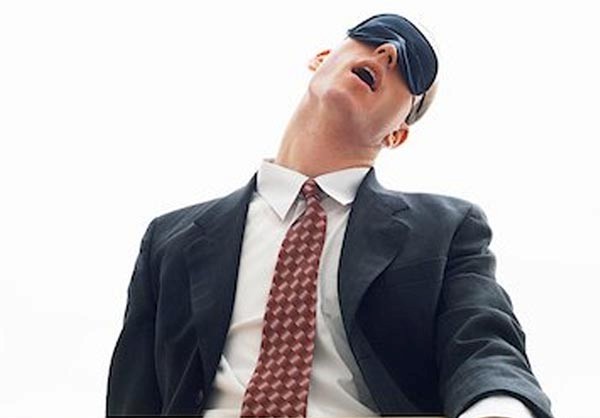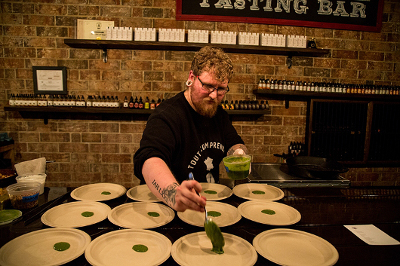If you should have any problems falling asleep, you should not treat this issue lightly. It should not take you more than 15 minutes to fall asleep. If this should be the case, you should be aware that you lose valuable sleeping time if you sum that up over an entire year. This waste of time makes you miss out on your long-term rest resulting to listlessness throughout the next day due to the fact that your “batteries” had not been reloaded last night. This can have disastrous effects on almost all aspects of your life. It can even lead to a heart attack if not treated on time. According to the US Department of Health and Social Services, about 64 million Americans suffer from insomnia. Studies have proven that out of the 64 million people women were 1.4 times more likely to suffer from sleeping disorders over the course of their lifetime. Vegans should also consider to remove certain beverages from their daily routine which favor sleeping disorders. Make sure to take the following advices seriously that teach you how to fall asleep in 30 seconds if insomnia should be an issue to you.
“If it takes you around 15 minutes to fall asleep each night, that’s more than 91 hours per year that you’ve lost. You’re basically spending more than two 40-hour workweeks just lying in bed, waiting to fall asleep! If you have insomniac tendencies and take more than an hour to fall asleep each night, you’re spending more than nine 40-hour weeks on that pointless activity every year. That’s a tremendous amount of wasted time!
If you’d like to change this situation, keep reading. I’ll share a way to train your brain to fall asleep almost instantly when you’re ready to go to bed.
Note: Remove Caffeine From Your Diet!
I strongly recommend that you get off all caffeine for at least 2 weeks before you attempt to improve your sleep habits. Common foods and beverages in your diet that you should avoid for better sleep include:
- Coffee
- Caffeinated Tea (including green tea, decaf tea and white tea)
- yerba mate
- Cola
- Chocolate (including cocoa and cacao)
Even a small cup of coffee in the morning can disrupt your ability to fall asleep quickly at night. You may also sleep less restfully, and you’ll be prone to awaken more often throughout the night. Consequently, you may wake up tired and need extra sleep.
If you really love your caffeine, the good news is that it’s okay to add it back once you’ve gone through this adaptation training. It will still disrupt your sleep a bit, but once you’ve mastered the habit of being able to fall asleep in 30 seconds or less then, most likely, you’ll still be able to fall asleep even if you consume some caffeine during the day.
Train Your Brain to Fall Asleep Faster
A decade ago, it might have taken me 15-30 minutes to fall asleep most nights. Sometimes, it would take more than an hour if I had a lot on my mind. Today it’s normal for me to fall asleep within 30 seconds or less, and often I’m able to fall asleep in less than 1 second. My best is probably around 1/4 of a second.
I’m not able to do this 100% perfectly. If I have a stressful day and there’s a lot on my mind at night, I may find it more difficult to relax and go to sleep. But most of the time under normal conditions, I can get to sleep within 30 seconds or less.
I reached this point not by the exertion of conscious will but rather through a long-term process of sleep training. So don’t think that there’s some mental trick that you can use right away to make this happen instantly. However, once you’ve trained yourself to this point, the process is effortless. You’ll be able to do it automatically. It will be no more difficult than blinking.
Understanding the Training Process
The training process may take a long time — months or even years, depending on how far you want to go — but it’s not at all difficult, and it needn’t take a serious time commitment. In fact, the training will most likely save you a significant amount of time. The only challenging part is maintaining consistency long enough to get results.
First consider that it’s possible for you to fall asleep faster. Have you ever been really tired and sleepy at the end of a day, and you fell asleep very quickly after getting into bed? Have you ever drifted off while watching a movie or reading a book? Have you ever fallen asleep within less than 2 minutes after lying down? If you’ve done it before, then consider the possibility that your brain already knows how to fall asleep quickly, and if you create the right conditions, then you’re capable of doing this again. You just need to train your brain to do this more consistently.
The main reason that you aren’t falling asleep faster is that you haven’t trained your brain to do so. You may be able to reach that point eventually, but you’re not there yet. Similarly, you may be able to do the splits if you engage in flexibility training, but in the absence of such training, you probably won’t be able to do the splits at all.
If you want to fall asleep faster, you must incentivize your brain to drop all other activity and immediately transition into sleep when you desire to do so. That is the essence of this approach. If there are few consequences for a lazy approach to falling asleep, then your brain will continue to be lazy and inefficient in this area. You haven’t given it a good enough reason to select more efficient behaviors.
Your brain is always active, even during deep sleep, and it operates in different modes of consciousness, including beta (waking), alpha, theta, and delta phases. When you lie in bed waiting for sleep, you’re waiting for your brain to switch modes. An untrained brain will often take its own sweet time making the necessary state change. So you may dwell on other thoughts… or toss and turn… or just lie awake until your brain is finally ready to transition. This is a common experience. Without incentives to become more efficient, your brain will remain naturally lazy by default.
Your conscious mind might very much like to go to sleep, but it isn’t in charge. Your subconscious determines when you fall asleep. If your subconscious mind is in no hurry to fall asleep, then your conscious mind will have a hard time forcing it. In fact, your subconscious may continue to bubble up thoughts and ideas to occupy your conscious mind, distracting you with mental clutter instead of letting you relax and slide into sleep.
A trained subconscious mind is obedient and fast. When the conscious mind says to sleep, the subconscious activates sleep mode immediately. But this only works if you’re feeling at least partially sleepy. If the subconscious doesn’t agree with the need for sleep, it can still reject the request.
The process I’ll share next will teach your brain that putzing around isn’t an option anymore and that when you decide to go to sleep, it needs to transition immediately and without delay.
The process involves using short, timed naps to train your brain to fall asleep more quickly. Here’s how it works:
If and when you feel drowsy at some point during the day, give yourself permission to take a 20-minute nap. But only allow yourself exactly 20 minutes total. Use a timer to set an alarm. I often do this by using Siri on my iPhone by saying, “Set a timer for 20 minutes” or “Wake me up in 20 minutes.” The first one sets a countdown timer, while the later phrase sets an alarm to go off at a specific time. Sometimes I prefer to use a kitchen timer with a 20-minute countdown.”
To read the rest of the article, check it out on the original source over at Family Health.







